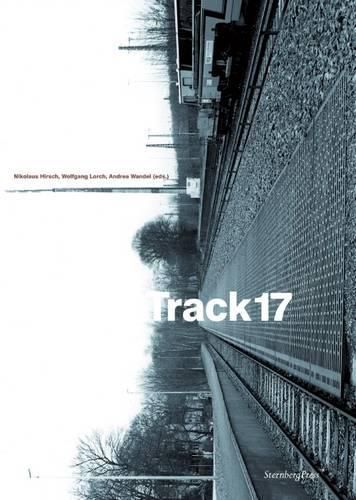Readings Newsletter
Become a Readings Member to make your shopping experience even easier.
Sign in or sign up for free!
You’re not far away from qualifying for FREE standard shipping within Australia
You’ve qualified for FREE standard shipping within Australia
The cart is loading…






Crimes against humanity, especially genocide, have been excluded from amnesty since the Nuremburg Trials. On a cultural level, oblivion by decree becomes an obligation to remember. This reversal is well-intended, but it opens up critical questions: Can memory be permanently established? Is it possible to maintain it in a monument?
The intervention at Track 17 at Berlin-Grunewald station, a work by architects Nikolaus Hirsch, Wolfgang Lorch, and Andrea Wandel on the site of the deportations from Berlin between 1941 and 1945, is an attempt that aims at a structural connection between memory and oblivion. Referring to Alois Riegl’s (the founder of the Modern Cult of Monuments ) differentiation between the specific, highly controlled documentary value, and the generic, always changing age value, the authors introduce a strategy that negotiates between stable and instable parameters: presumably permanent data, shifting vegetal successions, material durations and decay. This approach investigates whether it is possible to build ambivalence or even doubt into a monument. Thus, the uncertain status of the material memory becomes the focus of the intervention at Track 17.
The editors’ work includes the Dresden Synagogue, the Hinzert Document Center, a high-rise building in the geopolitical hotspot of Tbilisi (Georgia), and the highly debated Archeological Zone / Jewish Museum in Cologne.
Photos by Gerald Domenig and Lukas Roth
Contributors Alfred Gottwaldt, Nikolaus Hirsch, Susanne Kill, Wolfgang Lorch, Jorge Otero-Pailos, Diana Schulle, Andrea Wandel, Harald Welzer
$9.00 standard shipping within Australia
FREE standard shipping within Australia for orders over $100.00
Express & International shipping calculated at checkout
Crimes against humanity, especially genocide, have been excluded from amnesty since the Nuremburg Trials. On a cultural level, oblivion by decree becomes an obligation to remember. This reversal is well-intended, but it opens up critical questions: Can memory be permanently established? Is it possible to maintain it in a monument?
The intervention at Track 17 at Berlin-Grunewald station, a work by architects Nikolaus Hirsch, Wolfgang Lorch, and Andrea Wandel on the site of the deportations from Berlin between 1941 and 1945, is an attempt that aims at a structural connection between memory and oblivion. Referring to Alois Riegl’s (the founder of the Modern Cult of Monuments ) differentiation between the specific, highly controlled documentary value, and the generic, always changing age value, the authors introduce a strategy that negotiates between stable and instable parameters: presumably permanent data, shifting vegetal successions, material durations and decay. This approach investigates whether it is possible to build ambivalence or even doubt into a monument. Thus, the uncertain status of the material memory becomes the focus of the intervention at Track 17.
The editors’ work includes the Dresden Synagogue, the Hinzert Document Center, a high-rise building in the geopolitical hotspot of Tbilisi (Georgia), and the highly debated Archeological Zone / Jewish Museum in Cologne.
Photos by Gerald Domenig and Lukas Roth
Contributors Alfred Gottwaldt, Nikolaus Hirsch, Susanne Kill, Wolfgang Lorch, Jorge Otero-Pailos, Diana Schulle, Andrea Wandel, Harald Welzer